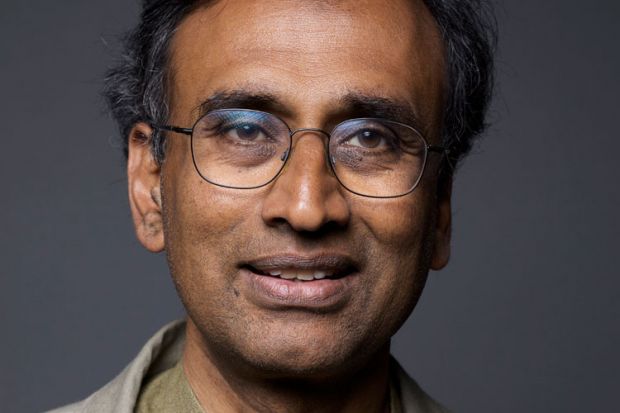Source: Chinese University of Hong Kong
Royal Society
Nobelist wins presidential ballot
Nobel laureate Sir Venkatraman (Venki) Ramakrishnan has been named president elect of the Royal Society, after a ballot of fellows. Sir Venki, who is deputy director of the Medical Research Council’s Laboratory for Molecular Biology in Cambridge, will take over from fellow Nobel laureate Sir Paul Nurse on 1 December. He shared the Nobel Prize in Chemistry in 2009 “for studies of the structure and function of the ribosome”: the molecular machinery in cells that turns genetic information into proteins. After studying in India and the US, Sir Venki held a chair in biochemistry at the University of Utah before moving to the Laboratory for Molecular Biology in 1999 specifically to pursue his study of the ribosome.
A-level study
Subject choices thwart aspirations
Just a third of bright teenagers from poorer backgrounds take an A level likely to help them attend a selective university, a study says. Drawing on data that followed 3,000 young people through school from the age of three, researchers at the University of Oxford found that just 33 per cent of poorer pupils who did well academically at the age of 11 went on to take a “facilitating subject” such as maths, English and modern languages at A level. Students hoping to attend a research-intensive institution are recommended to take at least one of these subjects, because they are seen as good preparation for university-level study. The study, Subject to Background: What Promotes Better Achievement for Bright but Disadvantaged Students?, was undertaken in partnership with the Sutton Trust.
Research collaboration
Network targets East-West synergy
A new network has been launched “to enable the development of sustainable higher education research partnerships between East and South East Asia and Europe”. The East Asian Research Collaborations Network was unveiled at the University of Hull on 18 March at a conference organised by the Society for Research into Higher Education. This brought together academics from China, Hong Kong and Vietnam as well as the UK. In a keynote address, Simon Marginson, professor of international higher education at the UCL Institute of Education, argued that “East Asia is on the margins in the UK, despite its overwhelming importance at the world level. We must push it into the centre of everyone’s consciousness…Building a broad highway between the UK and East and Southeast Asia is of great historical importance. In this, higher education must move out ahead of British society, government and business.”
Fossil fuel divestment
Oxford ‘complacency’ criticised
Campaigners have accused the University of Oxford of dithering over a decision on whether or not to divest from fossil fuels. The university announced on 16 March that it would wait until May to decide whether to continue investing in the fossil fuel sector, or if – like the universities of Glasgow and Bedfordshire – it will bring an end to the practice. Last October, an Oxford University Student Union resolution called on the institution to invest in low-carbon sectors and divest from companies involved in the extraction of coal and tar sands. The university said the union had “raised an important and multi-faceted matter which requires thorough consideration”. But the Oxford University Fossil Free campaign group said that the deferral “represents serious complacency towards the urgent need for action on climate change”.
Follow Times Higher Education on Twitter
The Home Office’s refusal to give indefinite leave to remain in the UK to Miwa Hirono, a high-flying academic expert on China, after she breached a rule forbidding applicants from leaving the country for more than 180 days in a year had our followers up in arms. “Current UK immigration policies are simply outrageous,” tweeted @OanaBurcu; “Disgraceful,” added @lucatrenta. @ProfDaveAndress, however, was less prepared to be indignant about the University of Nottingham scholar’s predicament. “File under ‘academics thinking reality doesn’t apply to them’,” he tweeted. “If only someone in university research management had helped her stay within her visa conditions.”

